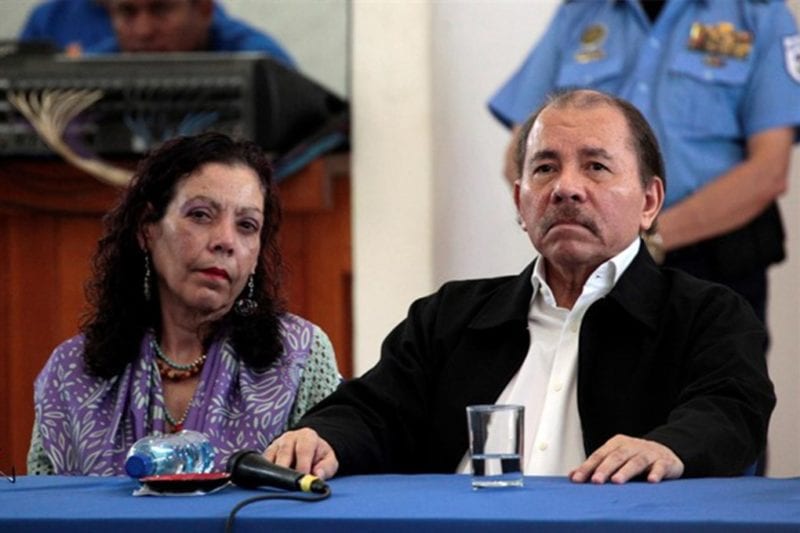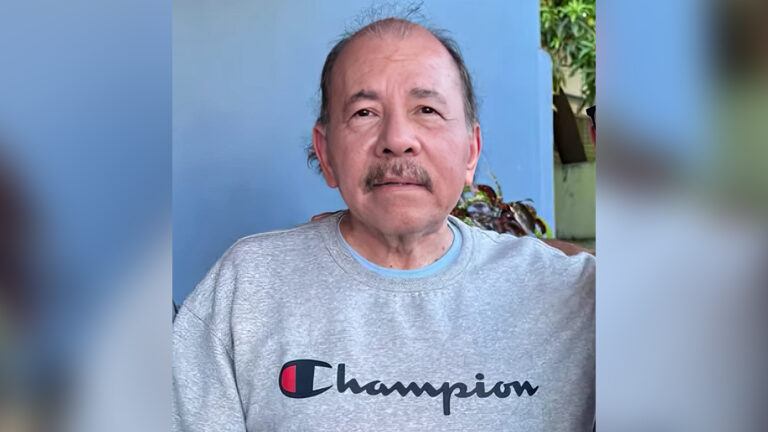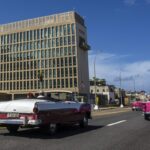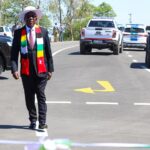Nicaragua’s President Daniel Ortega proposed a constitutional reform that would officially make him and his wife, current Vice President Rosario Murillo, “copresidents” of the Central American nation.
While the initiative has to pass through the country’s legislature, Ortega and Murillo’s Sandinista party control the congress and all government institutions, so it is likely to be approved.
The proposal also looks to expand the presidential term to six years from five. Ortega put forward also another bill that would make it illegal for anyone to enforce sanctions from the United States or other foreign bodies “within Nicaraguan territory.
President Daniel Ortega of Nicaragua has proposed constitutional reforms aimed at consolidating his administration’s power and extending its tenure. The key components of these reforms include:
Establishing a Co-Presidency: The reforms propose elevating Vice President Rosario Murillo, who is also Ortega’s wife, to the position of “co-president,” thereby formalizing shared executive authority.
Extending Presidential Terms: The presidential term would be extended from five to six years, postponing the next election cycle and potentially prolonging the current administration’s hold on power.
Expanding Presidential Powers: The reforms seek to enhance presidential authority over other branches of government, further centralizing power within the executive branch.
Creating a Volunteer Police Force: The establishment of a “volunteer police” force is proposed to support the National Police, potentially increasing the administration’s capacity to enforce its policies.
These reforms are designed to entrench Ortega and Murillo’s control over Nicaragua’s political system, undermining democratic institutions and perpetuating authoritarian rule
The Organization of American States general secretary’s office condemned the proposed constitutional reforms.
The ‘reform’ document is illegitimate in form and content, it merely constitutes an aberrant form of institutionalization of the matrimonial dictatorship in the Central American country and is a definitive attack on the democratic rule of law,” it said in a statement.
The proposals come amid an ongoing crackdown by the Ortega government since mass social protests in 2018 that the government violently repressed.
Nicaragua’s government has imprisoned adversaries, religious leaders, journalists and more, then exiled them, stripping hundreds of their Nicaraguan citizenship and possessions. Since 2018, it has shuttered more than 5,000 organizations, largely religious, and forced thousands to flee the country.
Dissident groups including the Nicaraguan University Alliance quickly railed against the measures, calling them an extension of that clampdown.
They are institutionalizing nepotism and repression, destroying the rule of law. Democracy faces its greatest threat.
Ortega’s proposed reforms is nothing but a rubber stamping formalization of a decision to guarantee presidential succession for Murillo and their family. Ortega has referred to Murillo previously in recent years as his copresident.
While rejection of international sanctions would have no immediate impact, Orozco said it could put the country at “high financial risk” and risk further penalties from the U.S. Treasury Department.
The constitutional reform to the presidency is part of a long-term plan for the administration to stay in power, and was pushed forward as a way to avoid provoking the incoming administration of U.S. President-elect Donald Trump.
Trump may not prioritize crackdowns on democratic freedoms in places like Nicaragua, but also isn’t likely to tolerate provocations.
“The procedure, apart from circumventing the popular will, the rule of law, creates the pathway to give Ortega extra time to stay in power.
President Daniel Ortega’s decision to propose constitutional reforms at this juncture appears to be motivated by a combination of political, strategic, and personal factors:
1. Consolidating Power Amid Political Decline
Ortega faces increasing isolation internationally, with sanctions from the U.S. and the European Union targeting his administration for human rights abuses and authoritarian practices. By formalizing a “co-presidency” with his wife and vice president, Rosario Murillo, he strengthens his family’s grip on power, ensuring continuity in governance even if his personal health or popularity wanes.
Nicaragua’s domestic political opposition has been largely dismantled through repression, but dissent remains. The reforms further centralize authority, leaving little room for institutional checks or challenges.
2. Neutralizing Succession Questions
Speculation about Ortega’s health and the future of his regime may be fueling these reforms. Elevating Murillo as “co-president” cements her position as his political successor, quelling uncertainty and potential rivalries within the ruling Sandinista National Liberation Front (FSLN).
3. Preempting Electoral Risks
Extending presidential terms and restructuring electoral timelines would delay upcoming elections, giving Ortega more time to consolidate control and potentially manipulate future electoral processes. It minimizes the risk of facing opposition movements coalescing before a scheduled vote.
4. Enhancing Security Apparatus
The proposal to establish a “volunteer police force” under government control reflects Ortega’s strategy to bolster state security and surveillance capabilities. This move preempts potential unrest, ensuring his regime can quickly suppress dissent, especially in urban centers.
5. International Pressure and Timing
The timing of these reforms may also reflect Ortega’s awareness of shifting geopolitical dynamics. With global attention divided by other crises (e.g., conflicts in Ukraine and the Middle East), Ortega may see an opportunity to implement controversial changes with less immediate backlash from the international community.
6. Legacy Building
By creating a framework for a dual leadership model, Ortega ensures that his family and political ideology remain entrenched in Nicaraguan politics, positioning his regime as a long-lasting pillar of the Sandinista revolution.
In sum, Ortega’s proposed reforms are a strategic response to both internal vulnerabilities and external pressures, designed to solidify his family’s control over Nicaragua and ensure his regime’s survival in the face of growing domestic and international challenges.
The proposed constitutional reforms by President Daniel Ortega could have significant and far-reaching consequences for Nicaragua, both domestically and internationally:
Domestic Consequences
- Increased Authoritarianism
Consolidation of Power: The reforms would formalize Ortega’s and Murillo’s control over the executive branch, leaving little room for institutional checks and balances. This further entrenches an authoritarian regime.
Erosion of Democratic Institutions: By centralizing authority and undermining political competition, the reforms would dismantle remaining democratic norms and processes, turning Nicaragua into a de facto one-party state.
- Suppression of Opposition
Expanded Security Apparatus: The creation of a “volunteer police force” would enhance the regime’s ability to monitor and suppress dissent, likely leading to increased political repression and human rights violations.
Intimidation of Civil Society: Opposition parties, activists, and independent media could face heightened surveillance and crackdowns, further silencing dissent.
- Economic Decline
Loss of Investor Confidence: The reforms signal political instability and authoritarian consolidation, deterring foreign investment and exacerbating Nicaragua’s economic challenges.
Sanctions and Isolation: The international community, particularly the U.S. and EU, may respond with intensified sanctions, worsening the economic hardship for ordinary citizens.
- Political Polarization and Social Unrest
Public Backlash: The reforms could provoke protests and civil unrest, especially among marginalized groups and youth. However, Ortega’s enhanced security measures may suppress such movements with force.
Weakening of Civic Trust: Further dismantling democratic norms could deepen cynicism and alienation among Nicaraguans, undermining long-term social cohesion.
International Consequences
- Heightened Geopolitical Tensions
Strained U.S.-Nicaragua Relations: The reforms will likely lead to a deterioration in relations with the United States, which has already imposed sanctions on Ortega’s regime for human rights abuses and electoral manipulation.
Regional Destabilization: Ortega’s actions could inspire similar moves by authoritarian leaders in Latin America, weakening democratic norms across the region.
- Increased Isolation
Loss of Multilateral Support: Nicaragua risks further alienation from international organizations like the Organization of American States (OAS) and the United Nations, which have already criticized Ortega’s human rights record.
Reliance on Authoritarian Allies: Ortega may deepen ties with countries like Russia, China, and Venezuela, aligning Nicaragua more closely with authoritarian states and away from Western democracies.
- Migration Pressures
Exodus of Nicaraguans: Continued political repression and economic decline could drive more Nicaraguans to seek refuge in neighboring countries, particularly Costa Rica, as well as the United States. This would exacerbate regional migration challenges.
Potential Long-Term Implications
- Entrenchment of Dynastic Rule
By institutionalizing Murillo’s role as co-president, the reforms pave the way for a dynastic succession, ensuring Ortega’s family maintains control even after his departure.
- Decline in Governance Quality
The centralization of power could lead to increased corruption, inefficiency, and mismanagement, as political decisions prioritize loyalty over competence.
- Resistance Movements
Over time, repression and economic hardship may galvanize resistance movements, either domestically or among Nicaraguans in exile. Such movements could challenge the regime in the long run, potentially leading to a cycle of instability.
In summary, Ortega’s proposed reforms are likely to solidify his regime’s control in the short term but at the cost of heightened repression, economic hardship, and international isolation. In the long term, these changes could exacerbate Nicaragua’s political and economic vulnerabilities, increasing the likelihood of unrest and weakening the country’s prospects for democratic recovery.

More on this story: Nicaraguan President tries to secure his presidency while losing public support





